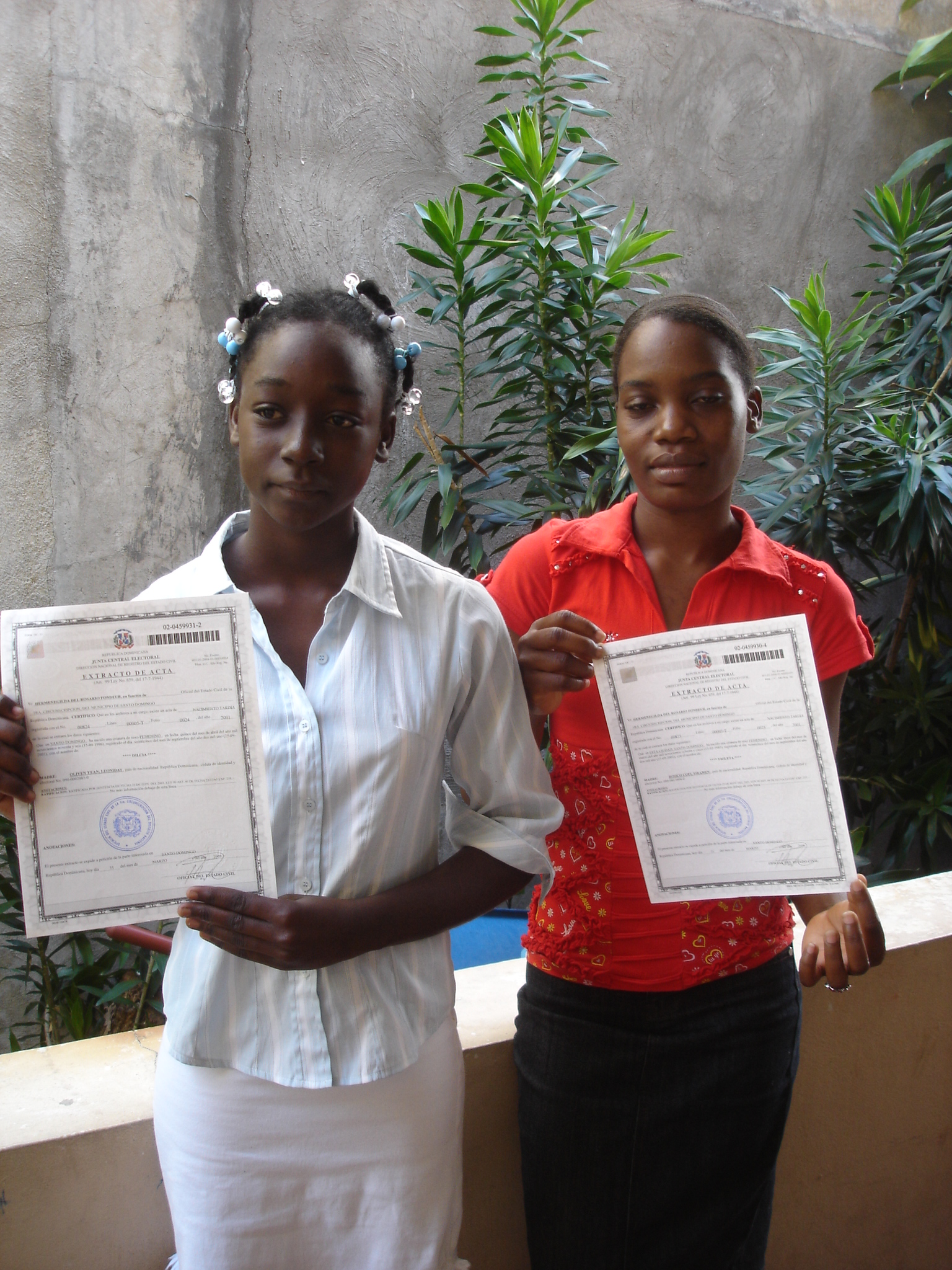






On March 5, 1997, Dilcia Yean and Violeta Bosico were taken by their families to the local civil registry in the town of Sabana Grande de Boyá to obtain their birth certificates. Both Dilcia, then ten months old, and Violeta, then twelve years old, have Dominican mothers. Accompanied by a lawyer from the Movement of Dominican-Haitian Women (MUDHA), they presented the documentation of the girls’ mothers along with documents that confirmed the girls had been born in the Dominican Republic. Nonetheless, the local registrar refused to issue them birth certificates.
Over the next years, government authorities provided ever-changing explanations as to why they would not provide the girls with documents, frequently requesting new evidence to prove the girls were entitled to Dominican nationality.
The actions of the Dominican government left Dilcia and Violeta without a nationality. In the Dominican Republic, a birth certificate is required to attend public school. Therefore, in 1998, Violeta was prohibited from attending school.
The case was first presented to the Inter-American Commission on Human Rights (IACHR) in October 1998 by MUDHA. In 1999, the Center for Justice and International Law and the International Human Rights Law Clinic at the University of California, Berkeley joined the case. In 2001, Dilcia and Violeta finally received their birth certificates. However, given that the Dominican government failed to clarify the procedures for obtaining a birth certificate, the case was submitted to the Inter-American Court of Human Rights, which issued its sentence in 2005.
The Court determined the Dominican government violated Dilcia and Violeta’s right to a nationality, a name, and legal personality, as well as the right to humane treatment. This was the first time an international tribunal issued a decision regarding statelessness and the right to a nationality. The Court clearly stated that although states have a right to regulate the acquisition of nationality, they also have an obligation to prevent, avoid, and reduce statelessness. In that sense, if an individual born in a state does not have access to another nationality, the state where they are born should grant them nationality.
Case Impact
Ajude-nos a continuar este trabalho crítico e urgente com uma doação!
DOAR AGORA